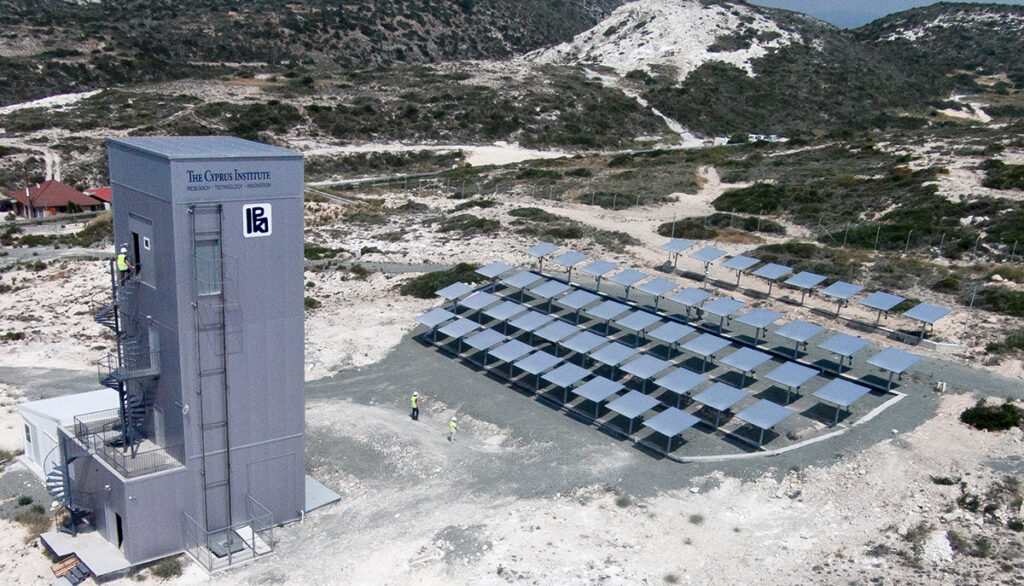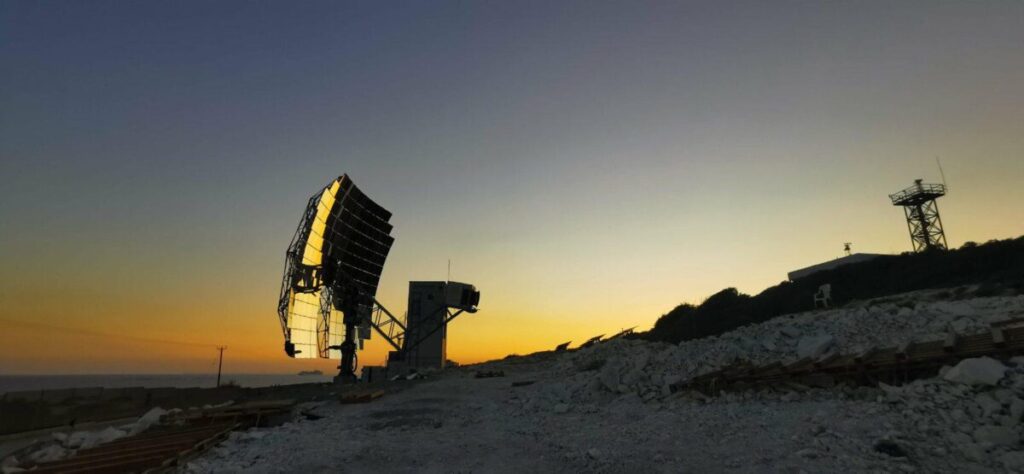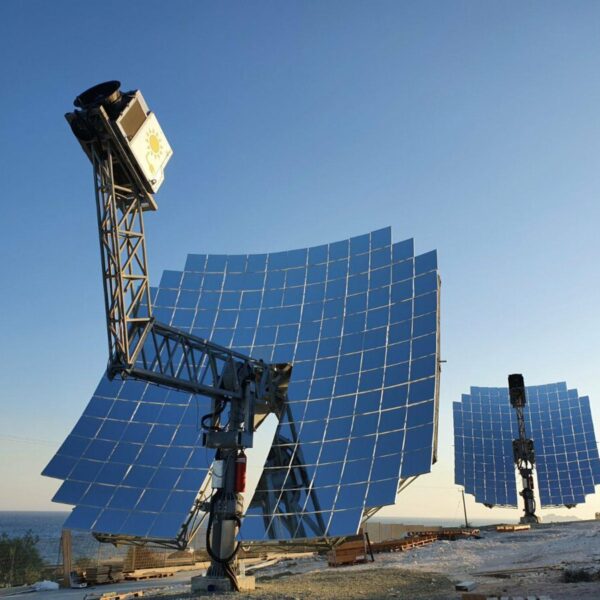Cyprus is a small island with an isolated electrical network, which largely depends on imported fuel oil for electricity production. In the village of Pentakomo, in the coastal city of Limassol, the PROTEAS has recently been operational, an innovative research unit created to test and develop new technologies for renewable energy sources. PROTEAS combines 50 heliostats* and a central receiver tower to produce a maximum thermal power of 150 kW through the medium storage of molten salt.
PROTEAS, the largest experimental center in the country. Chosen after a thorough techno-economic study conducted by the Cyprus Institute, it offers a unique environment to test island technologies, particularly in electrical energy and seawater desalination, under real conditions. And with solar energy as the main energy source. The unit, located on the southern coast of Cyprus, is designed to operate with a thermal power of 10 kW and produce up to 2m3 (equivalent to about ten bathtubs) of distilled water per day.
“The goal of PROTEAS is to contribute to the transition of Cyprus and the broader Eastern Mediterranean region (EMME) towards a sustainable energy model,” explains Dr. Marios Georgiou, head of research activities at PROTEAS. “We are experimenting with cutting-edge technologies for energy production and storage from renewable sources. But also smart electrical grids, energy management systems, seawater desalination, and brine treatment to reduce the environmental footprint of desalination units.” As Mr. Georgiou points out, some of these technologies in operation at PROTEAS are original in Europe, such as solar parabolas with Stirling engines**. Likewise, the seawater desalination unit, based on reverse osmosis*** technology, is the first pilot unit of its kind in Europe.
Contributing to the fight against climate change
Climate change has long been an urgent threat to our planet, with scientists warning that an increase in the planet's temperature of 1.5°C will have serious, even irreversible, consequences for our environment and societies.

"The increase in temperature and decrease in precipitation are expected to increase energy demand for air conditioning as well as the operation of desalination units. These issues are directly related to the research activities of PROTEAS, which has focused on energy production and storage and seawater desalination since 2014. The expertise developed over the years allows us to propose solutions to these challenges,” assures Marios Georgiou. "PROTEAS plays an important role in fighting climate change and the depletion of natural resources, such as water, by harnessing renewable energy sources and developing desalination technologies.” Its goal is to reduce dependence on fossil fuels and contribute to the reduction of greenhouse gas emissions, making PROTEAS an example of innovation for energy autonomy and sustainability in the region.
Adopting a heliostat
Solar energy is the most abundant form of renewable energy. Every hour, the sun radiates and sends more energy to Earth than is consumed worldwide in a year. The enormous potential of this source makes it particularly attractive to be used as a primary energy source.
To promote environmental awareness, PROTEAS has launched a special initiative inviting individuals, businesses, and organizations to participate in the research of the Cyprus Institute. The idea is to "adopt" the heliostats located at the Solar Applications Laboratory. "Heliostats are the main element of solar energy concentration systems, with ‘adopt a heliostat’ anyone can support the development of clean energies and environmentally friendly technologies,” explains Mr. Georgiou. The proceeds from this initiative are exclusively intended to support research on innovative solar technologies.
Open source: the installations of PROTEAS, including the solar mirror field, the tower, the molten salt, the steam and electricity production unit, as well as the seawater desalination unit and other related equipment, are open to the local and international community, as proposed during the drafting of this specific experimental program.
*Heliostats are mirrors equipped to track the movement of the sun, aligned so that the reflected solar rays always aim at the receiver, thus concentrating thermal energy.
** The Stirling engine is an external combustion engine with a working fluid in a closed cycle.
*** Reverse osmosis is a water purification technique that removes dissolved impurities such as ions and minerals from the solution.

Featured photo: Heliostats are equipped mirrors that track the movement of the sun @TheCyprusInstitute
